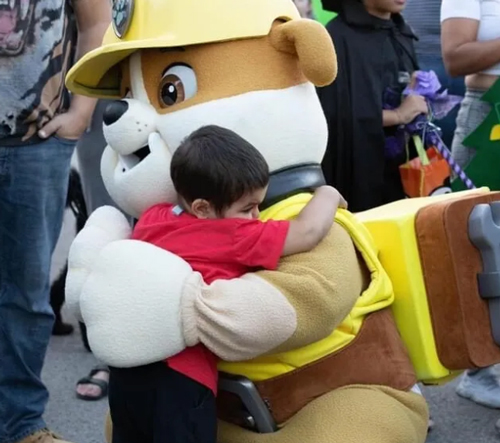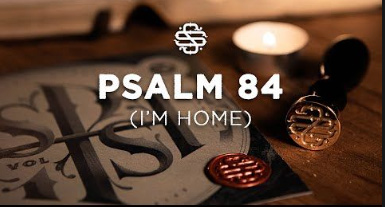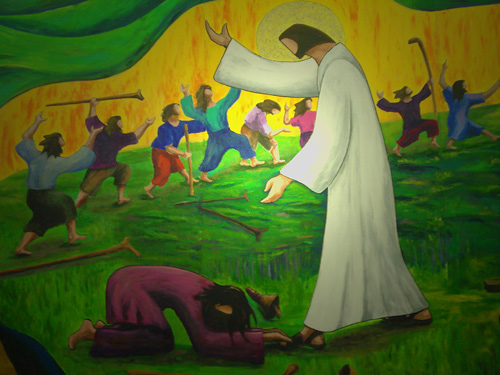
The signs of ending are all around us now. Thanksgiving has come and gone, the sweet sounds and smells and sights of the Christmas season have arrived. Before you know it, 2022 will be history, and we’ll wake up to a new year.
But all is not ending.
Yes, in so many ways our lives reflect “end times,” but we Christians know that the end times point us toward new beginnings, and that even in the endings, God is making all things new.
And that is what the season of Advent is all about. As we stand in the debris of the old year, we seek out the hope, and look deep into the future with eyes of faith, knowing that “Christ will come again.”
That’s one of the most mysterious, powerful and life giving things about Jesus—he died, but death did not destroy him. He is risen, and in his risen life, is with us at all times and in all places, if only our hearts are open to him. But best of all, and this is the looking into the future part, Jesus will come again.
Jesus will come again, not only to the quiet welcoming places that we prepare for him in our hearts, but Jesus will come again in glory, to make all things on this earth right at last, to bring God’s just and peaceful reign to replace the messes we have made. Heaven will come on this earth.
So we Christians look for the completion of God’s rule here on earth, and we prepare not only our hearts, but we also work to prepare the world around us as well, in the ways that we can. Like those who farm, we do what we can to prepare the earth for the new growth and life that is on the way when spring comes once more.
So this season is full of joyful expectation. And in gratitude, each Sunday we offer to God our gifts of bread and wine, which God in turn offers back to us, filled with God.
And with great thanks and praise, as we take the bread and wine, we offer our own God filled lives back to God, imperfect as our lives are, and will continue to be.
Today’s psalmist lived many centuries before Jesus, but the psalmist knows the same joy that we feel when we come into God’s presence and offer ourselves to God.
“I was glad when they said to me, ‘Let us go to the house of the Lord.’”
Pilgrimages to Jerusalem were marked with great joy. Even as the people headed for Mt Zion, they knew that all would not be perfect when they got there. But–even as they were jostled, even in the noise of people gathered in a city, even in the dust and dirt of the streets, the people could see beyond what was true at the moment about their surroundings to what could and would someday be.
They knew that Jerusalem is built as a city that is at unity with itself…. So the pilgrims prayed for its prosperity, prayed for the peace of Jerusalem, for peace within its walls, and quietness within its towers.
Peace has always been in short supply, and prosperity comes and goes, BUT we too know that someday, God’s peace will reign, not just in Jerusalem, but over all the earth.
Just not in our lifetimes, we say resignedly, and that’s why we need this season of Advent.
Because yes! God’s peace can and will reign in our lives, and in the world around us. Advent reminds us first of all that we believe that this promise is true, and second, that as people of faith, we are to be on the lookout for God’s love breaking into this world yet again, and over and over again, a never ending gift.
The Apostle Paul, who expected the return of Jesus sooner rather than later, has some great advice for us as we wait.
Paul wants us to be prepared. So here’s some advice he has for those in the Roman church, and for us too.
Don’t sit around in your pajamas, as tempting as that might be.
Get up and get dressed, and don’t put on just any old thing—
Paul says to put on the Armor of Light.
The Armor of Light has both inward and outward properties.
Wearing the Armor of Light means that we can see more clearly within ourselves. The shadowy places in our lives, the places that need some work, get lit up. We can see, all too clearly, the areas that need attention, the dust in the corners, the repairs that need to be made in our lives, the interior work that we need to do to prepare for God’s fuller presence in our lives.
And second, the Armor of Light pushes away the darkness out in the world around us. When we are feeling overwhelmed by news of the latest mass shooting, or the intransigence of war, or even just aggravated by the little annoyances of life, the Armor of Light shines a ray of hope into all that darkness. We wear those bright rays of hope. People who look at us can see light, and be encouraged, and find some hope in the darkness.
Last Thursday in its Thanksgiving edition, The Washington Post published a section called “Inspired Life,” Section F of that day’s paper. The section consisted of various inspiring stories that the editors felt illustrate the best of us.
To me, one of the most inspiring of all the stories was the one called “Costumed strangers make Halloween wish come true for boy with cancer,” originally published September 22, 2022.
Can Halloween costumes become Armor of Light? Yes!
So here’s the story, which takes place in Hamilton, Ontario. Alexandros Hurdakis was one year old when he was diagnosed with brain cancer, and now, at age five, the doctors could do nothing else to save the child.
His parents asked Alex what he still wanted to experience in the time he had left. He said that he wanted to see monsters on Halloween, because he remembered the fun he’d had visiting a haunted house a few years ago. But he was too sick to travel.
So a neighbor decided to build a haunted house in Alex’s back yard, and then she got on Facebook invited neighbors to show up in costume. The post exploded with people offering to help make a special day for this little boy.
On September 14, the day of the event, close to 1000 people showed up, parading through the streets dressed in spooky costumes. Inflatable decorations lined the streets, and the police officers and fire trucks showed up too.
Alex loved it all.
No one put that day into these terms, in any of the articles I read, but this verse from Isaiah fits what happened that day. “Come, let us walk in the light of the Lord!” That’s what all of the people did who came out to bring joy to a little boy and his parents. They were walking in the light of the Lord.
Alex’s father said that “at the most painful point in his life, he and his family are feeling gratitude for all of the support. We’re very blessed to live in a community like this.” And Arian Clark, who lost her daughter at age three to cancer, said that “it’s humbling and heartbreaking to witness this community come together every single time to support families like ours. I had chills, I cried a lot, I smiled a lot. This place, I swear, there is nothing like it.”
Halloween costumes pushing away the darkness of death, people taking time and energy to bring joy to a devasted family, that’s a whole community putting on the Armor of Light and bringing into reality, if only for a short time, the reign of God that is to be on this earth.
In today’s gospel, when Jesus is talking with the disciples before his death, he speaks of the time when he will return, a time that not even he knows. He makes it clear that in this world, life goes on from day to day, some days more memorable than others. We go about our ordinary activities and forget that nothing about our lives is ordinary!
And then, something happens—that something could be a blinding revelation, or the quiet advent of unexpected grace, maybe the sudden awareness you haven’t had in a while of the beauty of the late afternoon golden light turning everything to fire and light as the sun sets.
So this is the season to be prepared—for the things that we count on happening, our days coming and going—our family times of celebration, our care for the people around us, our putting on the Armor of Light in the ways unique to each of us.
But this is also our season to be prepared for the completely unexpected, for in a split second our lives can be changed beyond recognition, or even ended.
But when we have prepared for that unexpected day, by seeking to do good, we can accept whatever comes with peace and in praise and in gratitude for all that has been, for it’s all from God.
We can give thanks for all that is, and yes, give thanks even now for the unknown things yet still to come, for Jesus will be part of it all.



